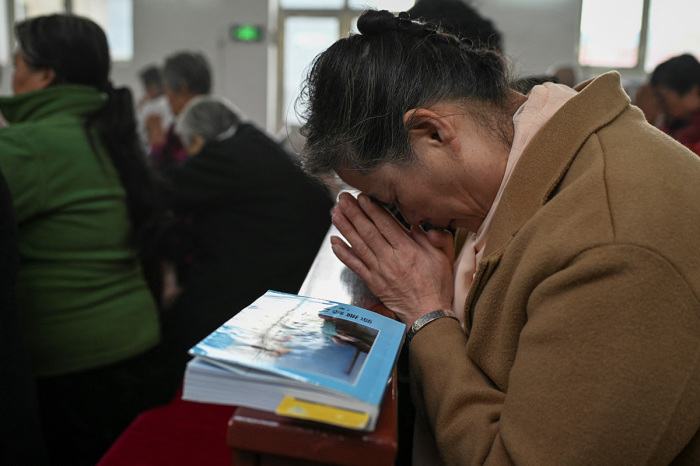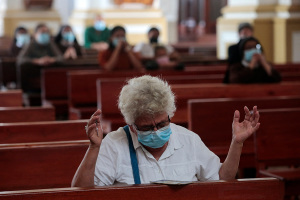Apple takes down Bible app in China to appease communist regime

Apple has removed a popular Bible app and a Quran app in China after the communist country’s regime deemed that the apps violated local laws on hosting religious texts.
Bible App by Olive Tree, which has over 1 million downloads, and Quran Majeed, used by millions of Muslims, have been taken down due to compliance issues, the tech company told the BBC.
Apple refused to comment but directed the BBC to its Human Rights Policy: “We’re required to comply with local laws, and at times there are complex issues about which we may disagree with governments.”
Apple also told the BBC that the apps had been removed because Chinese officials had stated they violated laws on hosting illegal religious texts.
“Apple chief executive Tim Cook has been accused of hypocrisy from politicians in the U.S. for speaking out about American politics, but staying quiet about China,” the BBC noted.
Chinese authorities are also removing Bible apps and Christian WeChat public accounts as new highly restrictive administrative measures on religious staff went into effect earlier this year.
Open Doors estimates that China has more than 97 million Christians, many of whom worship in unregistered or so-called “illegal” underground churches.
The U.S.-based persecution watchdog International Christian Concern documented more than 100 incidents of Christian persecution in China between July 2020 and June 2021 as the country’s communist regime seeks to forcefully convert independent religious groups into mechanisms of the Chinese Communist Party.
ICC tracked 23 incidents of authorities demolishing religious structures and symbols during its reporting period, the group said in its report.
“The CCP has torn down, destroyed, and removed numerous churches in China, especially those that refused to submit to its control,” the report said.
The persecution watchdog added in the report that it recorded 14 cases of “Sinicization,” which is a state campaign to forcefully assimilate religious groups into CCP-defined Chinese culture.
As an example, ICC highlighted the plight of a church bookstore that was forced to display Mao Zedong’s Little Red Book instead of the Bible. The Administration for Religious Affairs also ordered Christians to study President Xi’s book and memorize his speeches.
Under the direction of President Xi Jinping, officials from the CCP have been enforcing strict controls on religion, according to another report released in March by China Aid.
Open Doors USA, which monitors persecution in over 60 countries, estimates that there are about 97 million Christians in China, a large percentage of whom worship in what China considers to be “illegal” and unregistered underground house churches.
Christians are not the only religious minority to face persecution at the hands of the CCP, however.
Estimates suggest that as many as 1 million to 3 million Uyghur and other ethnic Muslims have been subject to internment camps in the western Xinjiang province, where they are taught to be secular citizens who fall in line with the CCP. In January, the U.S. State Department recognized China’s treatment of Uyghurs as a “genocide.”




























